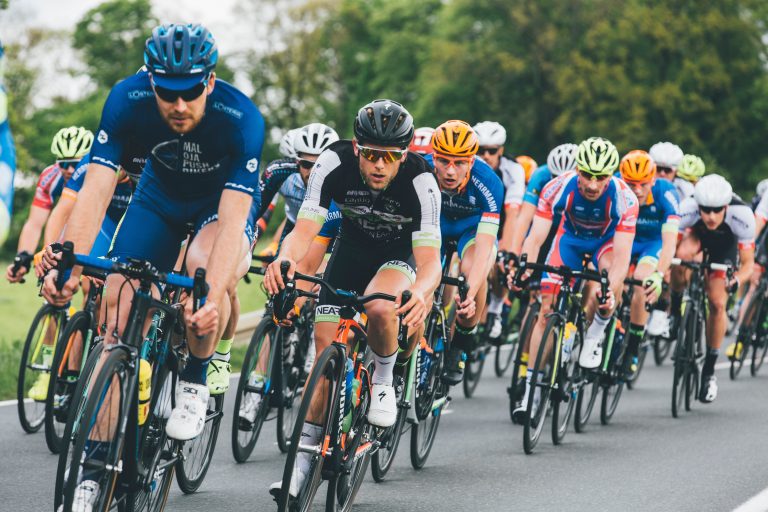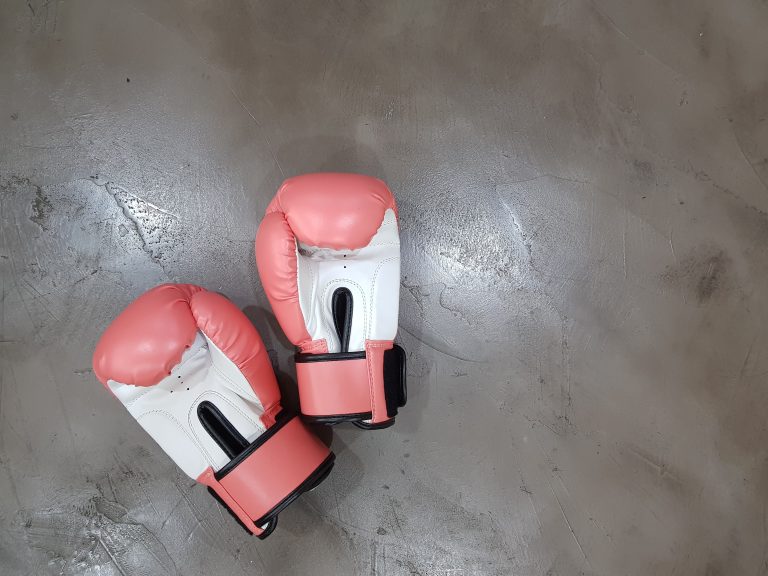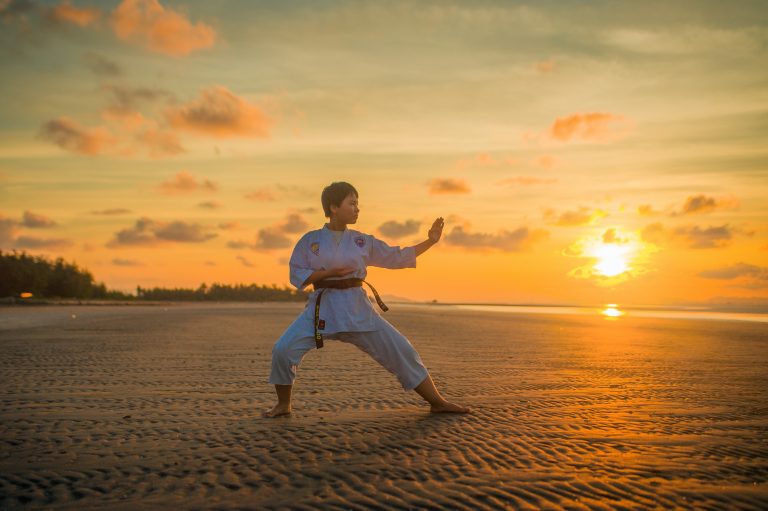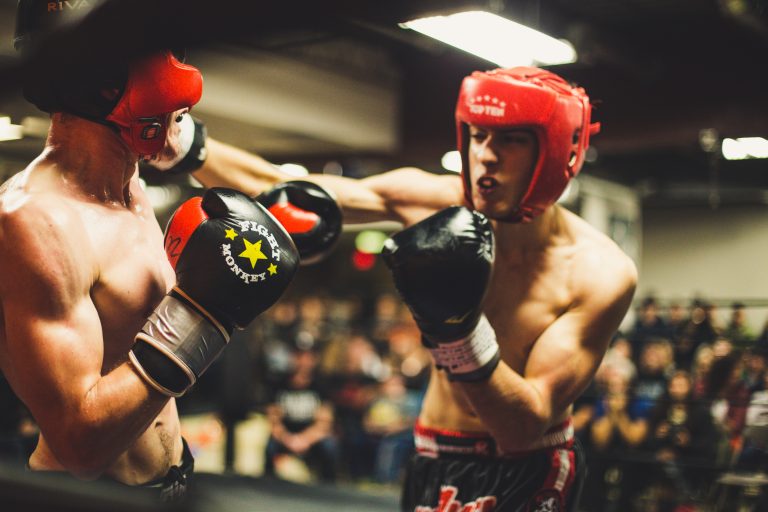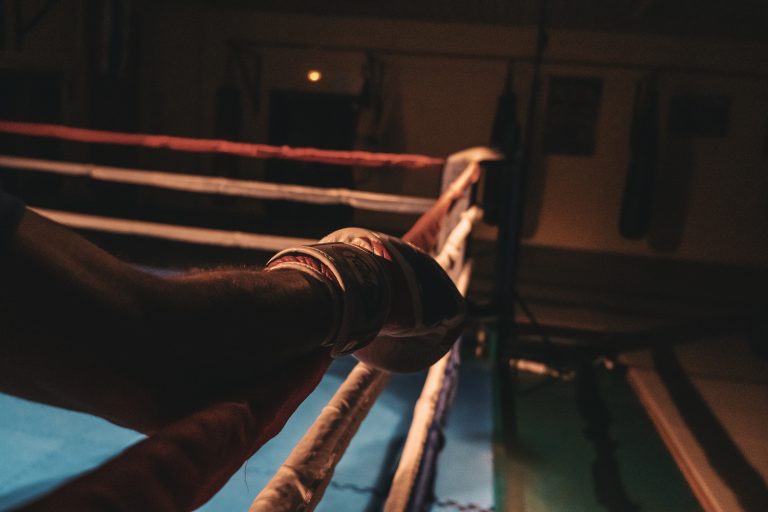Is Karate an Effective Martial Art for Self-Defense?
When it comes to martial arts, karate is one of the most popular. Every year, millions of people around the world take up karate, and now it has even become an Olympic sport. But is karate an effective martial art for self-defense? Should you choose karate as your primary form of self-protection?
In this post, we’re going to dive deep into the effectiveness of karate for self-defense. We’ll explore the history of the martial art, consider its core moves and principles, and look into how it can be applied in real life self-defense situations. By the end of this piece, you’ll know whether karate is suitable for self-protection.
A Brief History of Karate
Karate is a martial art that originated centuries ago in Okinawa, Japan1. Over time, it absorbed techniques from many other fighting styles, such as kenjutsu, judo, and aikido.
At its origin, karate was a form of unarmed combat developed for primarily self-defense. But over the centuries, it evolved into a sport that can also be used to compete in tournament matches. Karate didn’t gain mainstream attention until after World War II, when practitioners used it to demonstrate their strength and skill in public exhibitions2.
These days, karate is most often associated with a sport or a hobby. However, it has maintained its roots as a self-defense system. Most martial arts work as effective self-defense systems if used correctly and with proper training. But do these same roots also make karate an effective choice for self-protection? Let’s find out.
Core Principles and Movements
There are three primary principles behind karate that make it effective for self-defense3:
1. Hard and soft movements: Hard movements include strikes and blocks intended to inflict as much damage as possible. The goal is to end a fight as quickly as possible before serious injury can occur. Soft movements, on the other hand, include grabs and throws intended to disable your opponent with minimal damage.
2. Balance: Karate focuses on maintaining perfect balance, both in terms of posture and momentum. You learn to regain your balance quickly after an attack, giving you time to seize control of the fight if need be.
3. Mental toughness: Staying mentally tough throughout a fight is essential for any martial art. Karate focuses on mastering your emotions so that you remain calm and composed enough to assess each situation carefully and act accordingly.
The techniques used in karate vary from one style to another4. Traditional karate includes kicks, punches, blocks, and throws—but newer styles might focus on sports skills or less traditional techniques such as joint locks or concentric punching circles (known as teisho).
Applying Karate in Real Life
Now let’s come to the main question: How effective is karate for self-defense?
The short answer is yes—karate can be an effective form of self-defense5. It teaches you the techniques necessary to protect yourself from harm in a variety of situations, from grappling and striking to keeping your distance and using evasive moves. However, it’s important to understand that karate isn’t a magical solution—it requires dedication and practice if you want to use it effectively in real life situations.
Karate also has certain limitations. It isn’t designed to take on multiple attackers at once—which means that it’s unlikely to prove effective in gang-related encounters or other scenarios where you face more than one assailant6. Moreover, karate isn’t designed to help you win against tougher, larger opponents7 due to its reliance on agility and speed over raw strength.
Additionally, it would be unwise to rely solely on karate for self-defense—it pays to supplement it with other forms of training such as incorporating fitness into your routine8 or learning how to respond effectively to threats without resorting to violence9.
Conclusion
In conclusion, there is no doubt that karate can be an effective form of self-defense, provided that you practice it correctly and stay aware of its limitations. If you commit yourself to mastering the art and supplementing it with other forms of self-defense training, you can develop effective self-protection skills that help you stay safe in dangerous situations.
The Most Frequently Asked Questions About The Brief History of Karate
Karate has become an internationally recognized martial art, prominent for both its physical and mental benefits. It originated from Okinawa, a small island in Japan, and has since been adopted by people all around the world. Despite its widespread popularity, many people still have questions about its history, origins, and practice. In this blog post, we will answer the most frequently asked questions about the brief history of karate.
1. What is karate?
Karate is a martial art that originated on the island of Okinawa in Japan. The word ‚karate‘ comes from two Japanese words: ‚kara‘, which means ‚empty‘, and ‚te‘, which means ‚hand‘. Thus, karate can be translated to ‚empty hand‘, which refers to the fact that practitioners of karate do not use weapons, but rely on their own physical skills and techniques.
2. When and where did karate originate?
Karate originated in the Ryukyu Kingdom which was located on the island of Okinawa in Japan. It was developed over several centuries by the people of Okinawa, who created their own unique martial art style to defend themselves against invading forces. The practice of karate in its current form began to emerge in the late 19th century with the introduction of formalized training methods.
3. What are the different styles of karate?
There are many different styles of karate, each with its own unique techniques, training methods, and philosophies. Some of the most popular styles of karate include Shotokan, Goju-ryu, Wado-ryu, and Shito-ryu. Each of these styles has its own distinct characteristics and focus, ranging from speed and agility to power and technique.
4. What are the benefits of practicing karate?
Practicing karate can have numerous benefits, both physical and mental. Physically, it can help to improve strength, flexibility, balance, agility, and cardiovascular health. Mentally, it can help to develop discipline, focus, confidence, self-awareness, and overall well-being. Karate has also been shown to be an effective form of self-defense and can promote a sense of community and belonging within its practitioners.
5. How has karate evolved over time?
Karate has evolved significantly over time, both in terms of its practice and its philosophy. Initially, it was primarily a self-defense technique used by the people of Okinawa. However, as it spread to Japan and other parts of the world, it began to incorporate more formalized training methods and competition. In addition, different styles of karate emerged, each with its own unique techniques and training methods.
6. What is the history of karate competitions?
Karate competitions began to emerge in Japan during the early 20th century, and by the 1960s, the first official World Karate Championships were organized. Today, karate competitions are held worldwide, and practitioners of karate can compete in both sparring and forms competitions. The inclusion of karate in the Olympics in 2021 has also helped to further promote the sport on a global scale.
7. Who are some famous practitioners of karate?
There have been many famous practitioners of karate over the years. Some of the most well-known include Gichin Funakoshi, the founder of Shotokan karate, and Miyamoto Musashi, a legendary samurai who was said to have practiced karate. Other notable practitioners include Chuck Norris, Jean-Claude Van Damme, and Bruce Lee, who despite finding fame with other martial arts, incorporated karate into their training.
8. What is the philosophy of karate?
The philosophy of karate is rooted in the values of respect, discipline, and self-control. Practitioners of karate are encouraged to approach their training with humility, to respect their opponents and others, and to work on developing their overall character and sense of self. Many styles of karate also place a strong emphasis on the development of mental and emotional strength, as well as physical strength.
Conclusion
In conclusion, karate is an ancient martial art form that has evolved significantly over time. Its numerous styles and variations, as well as its philosophy and benefits, have helped to make it an incredibly popular practice worldwide. Whether you are interested in karate for its physical benefits or its mental challenges, there is no doubt that this ancient martial art has something unique to offer to all those who practice it.
Inhaltsverzeichnis

